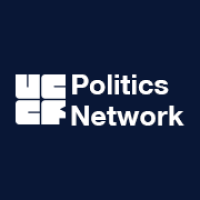Book overview:
A more accessible introduction to his political theology laid out in ‘Political Church’, Leeman sets out to deal with the great myth in American politics; the tale of public reason and private faith. Building on Psalm 2, Leeman argues that the public square is far from neutral but is instead a battleground of gods and, therefore, it is the Church and not the state in which our political hopes should be based.
Discussion:
“if I am going to have any hope for the nation. I cannot place it in the nation. I will place it in healthy churches.” P.237.
- How did you find the book? Things you found striking or disagreed with?
- In the first chapter, Leeman diagnoses the issue in America – how much resonated with you?
- “On the Last Day, God will not ask you, ‘Did you produce change?’ but, ‘Did you faithfully pursue change in those places where I gave you opportunity and authority?’” P.22.
- What myth about the public square does Leeman tackle in chapter 2?
- What alternative model does he provide? P.40.
- What role does the heart play in politics? Why is it important to recognise this? P.55.
- Leeman teaches that the Bible is not case law but a constitution (p.79). How does this change your approach to the Bible and to politics?
- Key question: ‘[W]hat commands does God impose on which people and how and when?' P.82.
- How do we balance law and wisdom? P.88.
- What is the role of government?
- Justice
- Peace
- Order
- God’s larger redemptive purposes
- What difference does the picture of the church as an embassy of heaven make to the Christian engagement with politics?
- What role do you have to play as an ambassador?
- How is political success defined by Leeman? P.173.
- What does Biblical justice look like? What principles should drive our pursuit of it?

